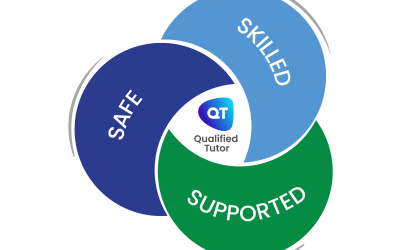
One very refreshing aspect of working with Nudge Education was that we were encouraged to show up with love.
The kind of love that says, I see you as you are and I accept you.
The kind of love that says, I believe that you are doing the best you can with the tools you have available to you and I want to help you grow your toolbox.
The kind of love that says, what’s happened to you isn’t your fault, and I know that you find it really hard to trust but I am going to show you, through my actions, that it is possible to practise that again.
I don’t think I have spoken to a single tutor in our community who doesn’t love what they do. Sure, there are times when it’s difficult to show up to work, we get worn down by all of the things beyond our control. Sometimes we find it really hard to show up for that particular student who displays the most unloveable behaviour, often in an attempt to feel like they matter to somebody.
The difficult thing about love is that it isn’t easy. A tautology if ever there were one.
Love doesn’t much take to being stuffed into forms, which is what everybody’s fantasies and imaginings are: custom-built plans for a constructed individual they’ve created to solve all their problems. Your authors have dream lovers, too – but people are not made of clay or stone, and it won’t work well to approach them with a chisel.*
Why bring up this wishy-washy nonsense, Jack? Well, dear reader. I don’t believe it is wishy-washy, or nonsense!
We can directly relate this quote to our students, our imaginings for our students are probably built around the tangible outcomes we want for them; a high grade, entry to a top school, tools for managing their mental health. The constructed individual is the fixed perception we have of our student, based on how they present to us in the short time we see them during the week and the other information we have acquired through testing, parents and other professionals.
So, how do we respond when the student breaks out of the mould we have built for them? It isn’t easy to recognise that the students we work with have their own set of needs, but loving the work we do – and by proxy, loving the students we work with – means accepting them as complete human beings. Approach them with a question, ‘What do you need?’, ‘How can I help?’. Stay open to the possibility that they might know what they need.
People don’t take kindly to being chiselled.
_______________________
*Chapter 6: Building a Culture of Consent. Easton, D. and Hardy, J.W. (2017). The Ethical Slut : a practical guide to polyamory, open relationships and other adventures. 3rd ed. California: Ten Speed Press.
Recommended Posts
Why Tutors Must be Safe, Skilled and Supported
Tutoring is one of the most powerful ways to transform a student’s learning experience. But for tutors to be effective, they must be safe, skilled, and supported. These three pillars are essential not just for the success of individual tutors but for the legitimacy...
Qualified Tutor: A Heartfelt Community for Tutors
At Qualified Tutor, we believe that tutors are colleagues, not competitors. Our community is built on collaboration, encouragement, and inspiration. Imagine the best kind of staff room—one where your peers cheer you on, share their tips and tricks, and are always ready to support you. That’s the heart of Qualified Tutor.
QT Conversations: Keeping Your Skills and Knowledge Fresh as a Tutor
In our latest session of QT Conversations, hosted by Julia Silver, we focused on the crucial topic of professional development for tutors. This insightful discussion, featuring a panel of experienced QT Members, delved into various aspects of tutoring, education,...




0 Comments